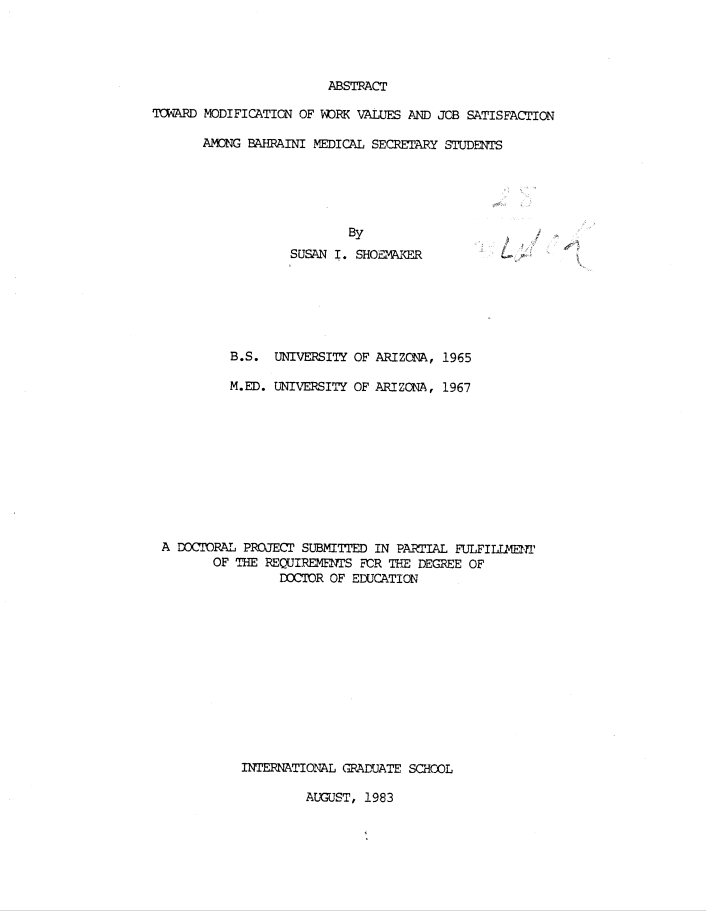Document
Identifier
https://digitalrepository.uob.edu.bh/id/8e944bdb-000c-4f5b-88f1-ceb763ebc406
ABSTRACT TOWARD MODIFICATION OF WORK VALUES AND JCB SATISFACTION AMONG BAHRAINI MEDICAL SECRETARY STUDENTS
Linked Agent
INTERNATIONAL GRADUATE SCHOOL, Thesis advisor
Date Issued
1983
Language
English
Extent
[4], 6, 158, [2], PAGES
Place of institution
Sakhir, Bahrain
Thesis Type
Thesis (PhD)
Institution
"University of Bahrain, College of Health & Sports Sciences,
English Abstract
ABSTRACT :
Job satisfaction levels and selected work values were examined by means of a one group pretest/posttest design prior to and following a human relations treatment class. Selected demographic factors were examined in relation to job satisfaction and work values. In addition, problem areas as identified by supervisors were reviewed prior to and following the treatment class.
Prior to the human relations class the "Job Questionnaire" (Brayfield and Roth, 1951) and the "Work Values Inventory" (Super, 1970) were administered to 26 female Bahraini medical secretary students. A sixteen week human relations class, which stressed positive work values and means for finding job satisfaction followed. instruments were again administered. Following the treatment, the two
The subjects indicated a high degree of similarity in their responses to the the instruments, and they were satisfied with their jobs prior to and following the treatment. However job satisfaction changed during the period for 92.3% of the subjects, with the over-all level of job satisfaction increasing. The work values of the subjects were not significantly altered following the human relations class. The subjects indicated that all of the values examined were at least moderately important to them, with a slight skewing toward a high importance for all of the values examined. The only relationship found for job satisfaction and work values was a significant correlation for job satisfaction and material values prior to the treatment; however, no correlation for work values and job satisfaction was found following the treatment.
Demographic factors of age, number of months employed, and grade were correlated with job satisfaction and work values. Prior to the treatment, correlations were found for grade and goodness of life values and grade and job satisfaction. Following the treatment, correlations were found for grade and self expression values, grade and behavioral control values, number of months employed and self expression values, age and goodness of life values, and age and behavioral control values.
Following the human relations class, only six of the fifteen original supervisor's identified problems remained, and no new problem areas were added.
Conclusions were that the human relations treatment class may have altered job satisfaction levels, but that the categories of material values, goodness of life values, self expression values, and behavioral control values were not altered by the treatment.
Member of
Category
Theses

